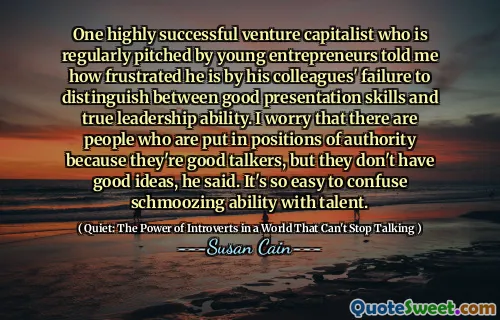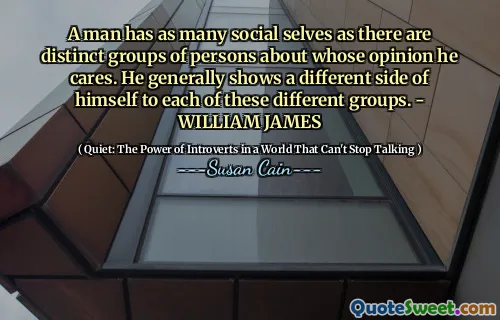
Now that you're an adult, you might still feel a pang of guilt when you decline a dinner invitation in favor of a good book. Or maybe you like to eat alone in restaurants and could do without the pitying looks from fellow diners. Or you're told that you're "in your head too much," a phrase that's often deployed against the quiet and cerebral. Of course, there's another word for such people: thinkers.
This quote beautifully encapsulates the quiet struggles introverted individuals often navigate in a world that prizes extroversion and constant sociability. It highlights the subtle social pressures and judgments thrown at those who find joy in solitude or reflective activities. The pang of guilt felt when declining social invitations indicates how deeply societal expectations influence personal choices. The discomfort of eating alone, accompanied by pitying stares, underscores how actions outside the norm can elicit unwarranted responses. Moreover, being labeled as "in your head too much" often diminishes the value of inner thought and intellectual reflection, treating it as a flaw rather than a strength. This quote reframes that narrative by declaring such people as "thinkers"—valuing introspection and intellectual depth. It acknowledges that being quiet or cerebral is not a deficit but a way of being that enriches personal and societal understanding. In the context of Susan Cain's Quiet: The Power of Introverts in a World That Can't Stop Talking, the quote calls attention to the need for societies to embrace and normalize these traits rather than marginalize them. It also invites readers to honor their own inclinations—whether toward social engagement or serene contemplation—without guilt or shame. Ultimately, this passage encourages a broader acceptance of diverse personalities and affirms the vital contributions introverts make simply by being true to themselves.











